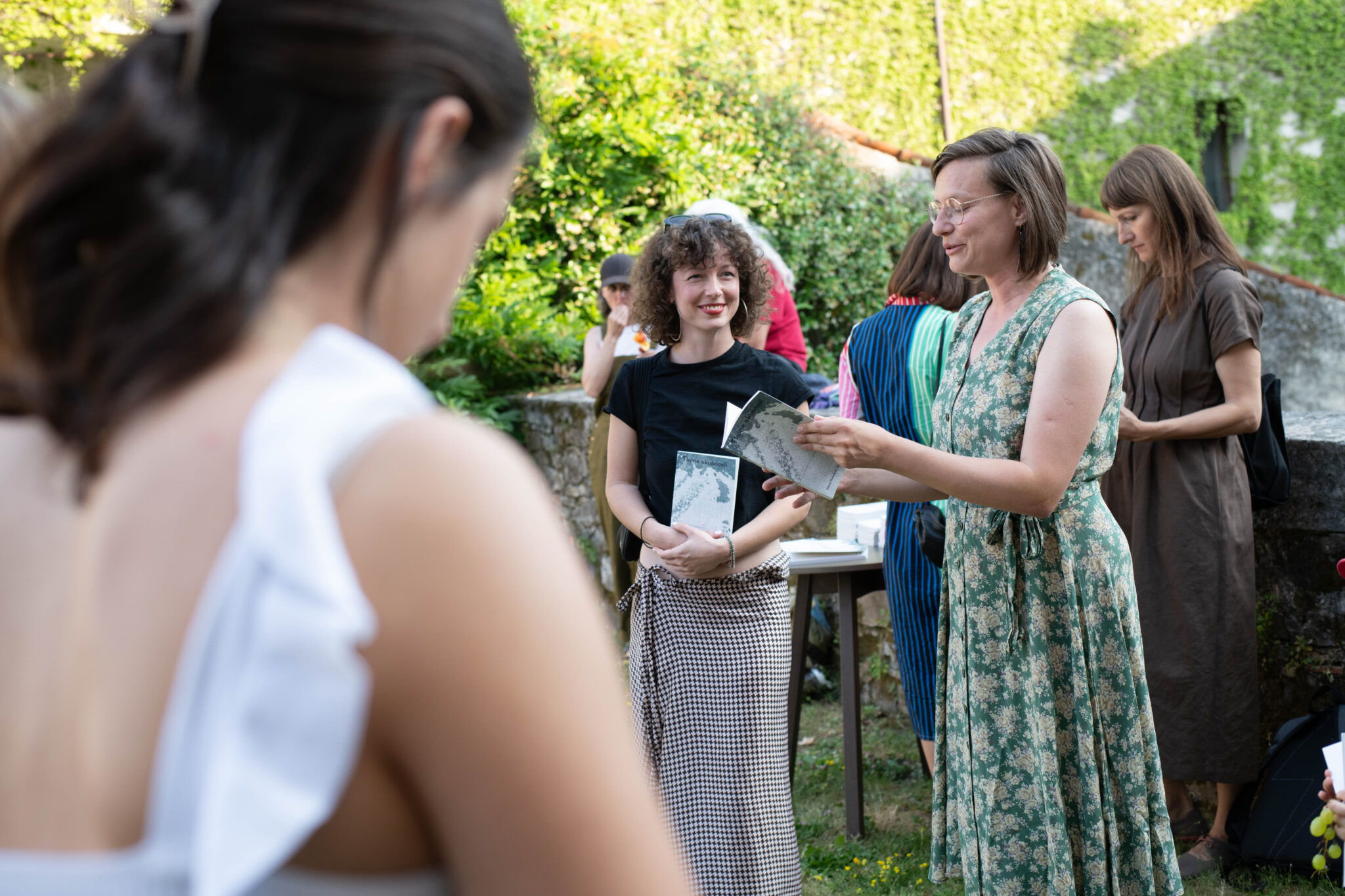
The publication features five profiles from five towns: Darja Okorn (Kranj), Vanda Klemenc and Aleksandra Džajić (Jesenice), Matjaž Rešek (Škofja Loka), Carolina Piccolomini Lantieri (Gorizia), and Edi and Slavka T. (Idrija).
Due to its specific geographical, economic, and social context, Slovenia and its cross-border territories offer a unique perspective on the transformation of communities and urban spaces, which have evolved from peripheral textile settlements into contemporary towns. Debeljak defines them as post-peripheral cities, which today are reestablishing connections to global currents through heritage and contemporary practices. She foregrounds artisanal gestures—bobbin lace-making, embroidery, sewing—as a counterpoint to automated and alienated forms of production.
The included visual material was created using intaglio printmaking techniques, which are increasingly being replaced by faster, digital methods. The publication opens a space for reflection on the value of manual labor, personal narratives, and the in-between spaces that standardized production often overlooks. Woven Communities is not just a documentation of past practices but an invitation to consider the future: how we might reweave new relationships from forgotten threads—between ourselves, material legacies, the stories of intertwined communities, and the spaces we inhabit.
The publication was produced by Zavod Carnica, the founder of the BIEN textile art biennial, and co-funded by the European Union within the framework of the project 101173725 — Knots and Patterns — CREA-CULT-2024-COOP.
Events:
Saturday, June 21, 6:30 PM, Garden of the Lantieri Palace, Gorizia
Publication Presentation
Tuesday, September 2, 6:00 PM, Cherry Garden of the Layer House, Kranj
Publication Presentation and Conversation with the Author